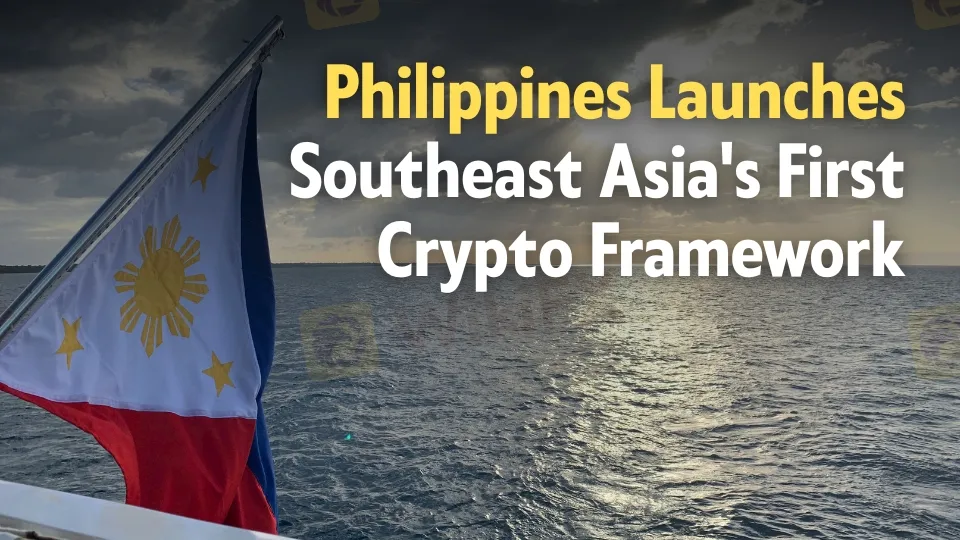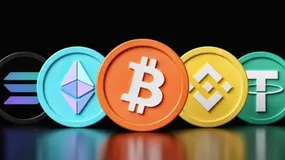If you haven't noticed yet, the crypto market is in free fall, but why?
Crypto has been falling rapidly the past few weeks with no indication of slowing down.
简体中文
繁體中文
English
Pусский
日本語
ภาษาไทย
Tiếng Việt
Bahasa Indonesia
Español
हिन्दी
Filippiiniläinen
Français
Deutsch
Português
Türkçe
한국어
العربية
Abstract:Philippines launches pioneering crypto regulations, enhancing investor protection and market transparency with strict rules for CASPs.

On June 12, 2025, the Philippines Securities and Exchange Commission (SEC) introduced its new “Crypto Asset Service Provider Rules.” This move makes the Philippines the first Southeast Asian nation to set up a detailed system for managing cryptocurrencies. The rules cover things like issuing, trading, and promoting crypto assets, as well as registering companies that provide these services. The goal is to create a clear, safe space for financial growth while protecting people from the ups and downs of the crypto world.
The new regulations require all Crypto Asset Service Providers (CASPs) in the Philippines to register as local businesses. They must have at least 100 million Philippine pesos (about $1.8 million) in paid-up capital. This high requirement could push smaller, less reliable platforms out of the market. These providers also need licenses from both the SEC and the Bangko Sentral ng Pilipinas (BSP), creating a stronger oversight system.
To boost safety and protect investors, platforms must set up local data centers, provide regular reports, and keep customer funds separate. Breaking these rules could lead to hefty fines of up to 10 million pesos or even five years in jail. These steps aim to ensure only trustworthy businesses operate in the market.
The new rules make it harder for new companies to enter the crypto market. The 100 million pesos capital requirement is much higher than in places like Thailand, where its around $500,000. This could mean smaller platforms struggle to meet the standards, leading to mergers or closures. Experts think big global platforms like Binance or Coinbase might move in to take advantage of the new setup.
Smaller local exchanges may need to join forces with bigger companies to stay in business. This could lead to a market with fewer, but stronger, players, making competition tougher.

The regulations put a big focus on keeping investors safe. Companies issuing crypto assets must submit detailed reports at least 30 days before launching. These reports need to explain risks, the companys background, and how the assets work. Marketing rules are stricter too, banning false claims or promises of big profits. Platforms must also include clear warnings about risks to help investors make informed choices.
These changes should help people feel more confident in the market. By tackling issues like fraud and false information, the rules aim to create a safer space for both everyday and big investors.
The rules also tackle money laundering and cybersecurity. All CASPs must follow strict Know Your Customer (KYC) rules and set up strong systems to spot and stop illegal activities. They also need solid cybersecurity plans to prevent market manipulation. The BSP can check on platforms that dont follow the rules, adding another layer of oversight.
The Philippines is also testing a peso stablecoin project, showing its commitment to safe and compliant crypto services. These rules could pave the way for more stablecoin projects and solidify the countrys role as a leader in crypto regulation in Southeast Asia.
The new rules bring challenges for smaller platforms, especially with the high capital requirement. Many may close or merge due to increased costs, which could shake up the market for a while.
But in the long run, the outlook is bright. The Philippines is aligning its crypto rules with its broader financial tech goals. BSP data shows over 12 million crypto users in the country in 2024, with 15% of cross-border payments using crypto. This growing interest could draw big investors like BlackRock or Goldman Sachs to expand in the Philippine market.
With clearer rules, investors are likely to move away from risky bets and focus on safer, value-driven choices. The SEC is encouraging people to check if platforms follow the rules and avoid those promising unrealistic returns. The countrys young population, with an average age of 25, is increasingly open to crypto, which could lead to smarter investment decisions over time.
Despite the progress, some issues remain. The rise of decentralized finance (DeFi) and non-fungible tokens (NFTs) could complicate things, as the rules dont fully cover things like decentralized autonomous organizations (DAOs). This creates some uncertainty for new projects.
The Philippines also hasnt set clear tax rules for crypto profits, which could confuse investors. If other countries, like the United States, bring in tougher regulations, it might create challenges for Philippine platforms operating globally.
The Philippines new crypto rules could serve as a model for other Southeast Asian countries. While there may be some short-term struggles, the long-term picture looks promising. The changes aim to create a clearer, safer, and more competitive market, attracting both local and global investors.
As the Philippines grows into a regional crypto hub, the world will be watching. How these rules play out could shape the future of crypto regulation in Southeast Asia and beyond. One thing is certain: the crypto market in the Philippines is set for a major transformation.

Disclaimer:
The views in this article only represent the author's personal views, and do not constitute investment advice on this platform. This platform does not guarantee the accuracy, completeness and timeliness of the information in the article, and will not be liable for any loss caused by the use of or reliance on the information in the article.

Crypto has been falling rapidly the past few weeks with no indication of slowing down.

Discover PU Prime’s new campaign, “The Grind,” and learn how trading discipline builds long-term success. Watch and start your trading journey today!

IG boosts FCA compliance by integrating Adclear’s AI tools. Learn how automation accelerates marketing approvals and ensures regulatory accuracy.

The Indian Finance Minister Nirmala Sitharaman, while announcing the Union Budget 2026-27, proposed a sharp rise in the Securities Transaction Tax (STT) on Futures and Options as part of the government’s strategy to soothe the country’s overheated derivatives market. The move comes on the backdrop of regulators’ concerns over excessive speculation in F&O allowing retail traders to enter the market and lose capital. Whether the government will be able to curb excessive speculation in F&O through this move remains to be seen. The stock indices, however, were hit hard, with the BSE Sensex falling by 1500 points amid widespread selling on the STT hike. Let’s examine the potential impact of this hike on Indian F&O traders.
